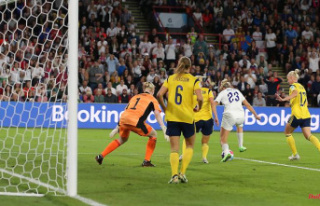Save gas now so that the storage tanks last longer in the event of a crisis - Finance Minister Lindner thinks that's a good idea. He welcomes the EU's gas emergency plan, but also makes fun of a statement by Economics Minister Habeck.
Federal Finance Minister Christian Lindner welcomed the European Union's gas savings target. "Yes, we have to do better with the gas now. This is a contribution to being able to endure a critical supply situation longer," said the FDP chairman on ntv. As possible savings measures, Lindner mentioned optimizing the settings for gas heating or switching to the home office over Christmas and New Year in large authorities so that the buildings do not have to be heated.
In this way, the situation can also be managed without the "sometimes somewhat funny hints, such as when showering," said Lindner - alluding to a statement by Economics Minister Robert Habeck from the Greens.
Asked about a possible extension of the service life of German nuclear power plants, Lindner said: "We will not be able to pursue the old strategy of producing electricity with gas for a long time until we have enough solar and wind power." In addition, one cannot rely on lignite again, as it is very harmful to the climate.
"On the other hand, we see that the high gas prices could prompt people to heat with electricity again and buy fan heaters," said the FDP leader. "This could result in a power outage that could keep us busy for more than just a few months." That is why the continued operation of the nuclear power plants must be checked without reservation. "It's not about many years, but we may have to get used to the idea of still needing nuclear energy in 2024."
Lindner rejected another relief package this year. "This year it was a package of over 30 billion euros. The state cannot do more. The German state also has limits to what it can shoulder financially," he said. The minister stressed that government spending had to be reduced and "getting out of debt" had to be done. "Next year, that's also my suggestion, there will be a new relief program for 2023." With a view to rising ancillary costs for tenants, it will be checked whether further measures are necessary, but tenants in Germany are already “very protected”.
In addition, Lindner wants to stick to the debt brake and does not see investments in danger as a result. "The investment projects are all reflected in my budget," he said. "The problem is not the lack of public money, but we need fast planning and approval processes." No project fails due to public funds in the federal budget and in the climate and transformation fund: "Investments are taken care of."
The debt brake is about the young generation, which shouldn't be burdened with more debt, said the FDP politician: "We are an aging society, we also have to re-establish our prosperity in tough international competition. Every billion in additional debt weighs harder, especially for the younger generation." Lindner renewed his call for the tax system to be adjusted to inflation. "Fighting the so-called cold progression is still controversial within the coalition, but that would be an important contribution, also to relieve the working middle in Germany."
Lindner also said he was against an extension or a successor to the 9-euro ticket: "I don't believe in it. I'm against a free mentality. And I also think it's unfair to subsidize it with taxpayers' money." Lindner justified his statements with the fact that people in the cities benefited from such a ticket, but: "Do you know who finances it? It is financed by the middle-income family who live in the country, pay taxes and have no train station and relies on the car."
Lindner, on the other hand, suggested that both the tank discount and the 9-euro ticket should be phased out and that the "distance fee" be increased again. This is not only intended for commuters by car, commuters using other means of transport would also benefit, according to Lindner.












